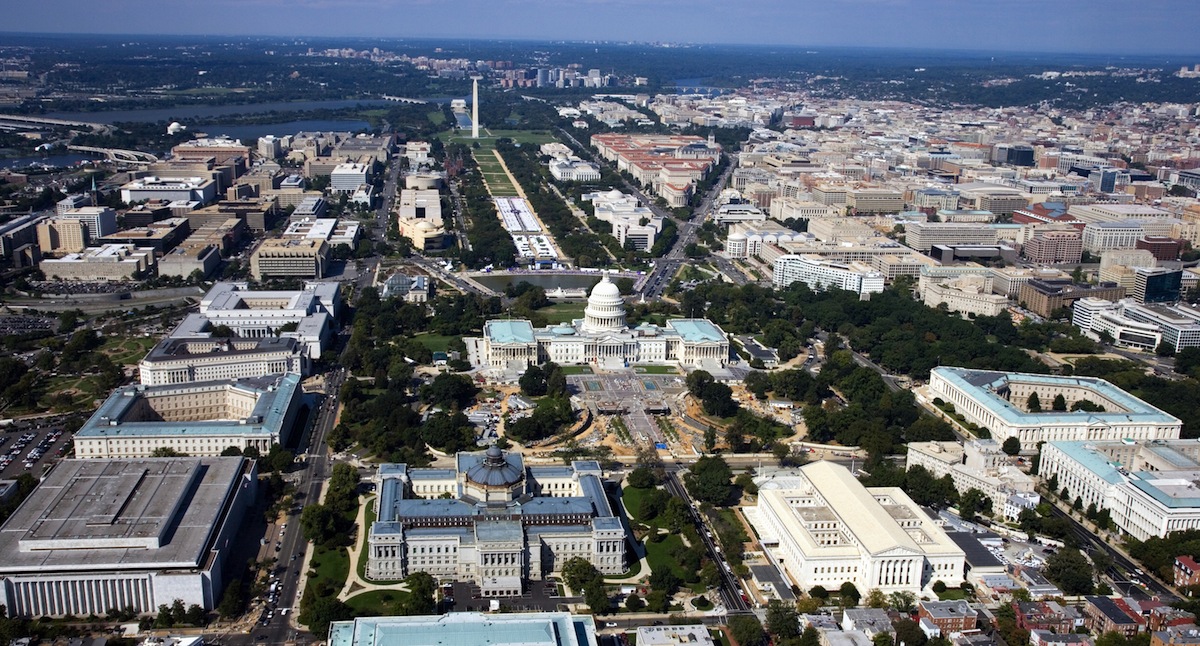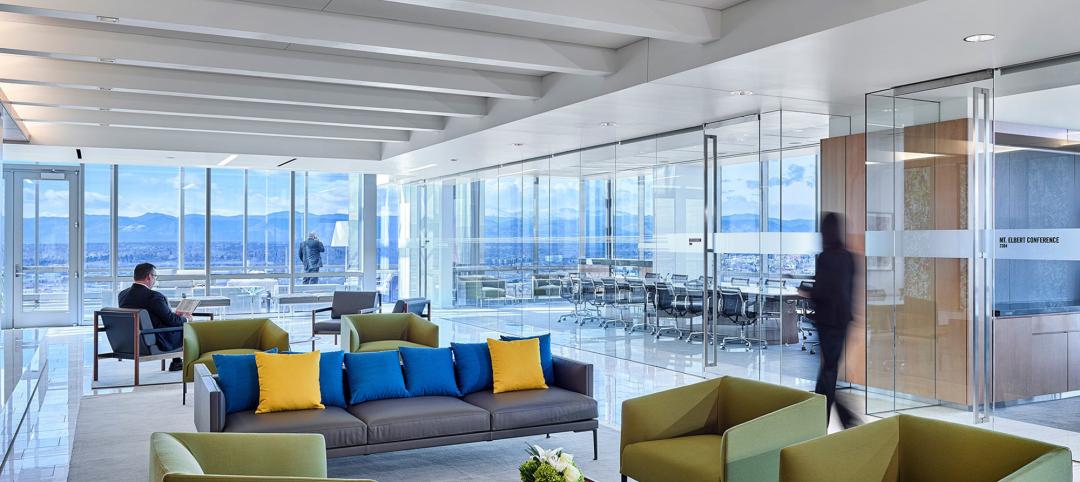There are 71.5 million sf of vacant office space in the Washington D.C. region. The national real estate brokerage Marcus and Millichap expects one-fifth of metro D.C.’s total office space to be empty by the end of this year. And another 1 million sq of office space could come onto this market over the next several years as businesses vacate older buildings once their leases expire.
The D.C. suburbs are fast becoming the latest American ghost towns, according to the Washington Post, as work styles have changed, preferences have shifted toward walkable commutes, and government—the area’s biggest employer—has shrunk.
The corporate campus is far from dead—just ask Google, Facebook, and other Silicon Valley companies that are building massive new headquarters and reinventing this concept to be transit-oriented and Millennial-friendly.
The D.C. suburbs are fast becoming the latest American ghost towns, as work styles have changed, preferences have shifted toward walkable commutes, and government—the area’s biggest employer—has shrunk.
The U.S. Bureau of the Census’ latest estimate for the value of private office construction put in place was up, year-to-year, 24.6% in May to $55.4 billion. Spending on public office construction in May rose 26.9% to $46.6 billion.
But in certain states, there have been mass evacuations of office spaces. In New Jersey, pharmaceutical firms that once operated sprawling suburban campuses have left millions of square feet of office space, warehouses, and labs deserted.
Empty office buildings have been a fact of life in D.C. and its suburbs for a while. By mid-2014, 11 Montgomery County, Md., office buildings totaling 2.25 million sf stood almost or totally vacant, and another nine, totaling 1.4 million sf, were “almost totally available”.
A portion of vacancies is attributable to federal government cutbacks. The Post reports that government agencies have been evacuating office and warehouse spaces in droves. They vacated 7,315 buildings with 47 million sf of office space in 2014 alone, reports Federal News Radio.
Still, office construction continues in D.C., and some developers and AEC firms view this market’s office space surfeit as an opportunity, although most of the recent activity is occurring within the city’s limits.
Skanska disclosed last week that it is investing $116 million in a new office building in D.C. The giant contractor will develop and build a new 11-story, Class-A office building with ground floor retail and four below-grade parking levels in Washington’s Capitol Riverfront submarket. The total leasable space will be about 22,000 sm (237,000 sf). Construction is scheduled to begin later this summer.
Tishman Speyer recently paid $30.5 million to acquire 2020 M Street N.W., the longtime D.C. bureau of CBS News, which it will redevelop into a modern office, newsroom and studio space for the media giant.
On July 21, Carr Properties, a local owner/operator/developer, acquired Columbia Center, a 393,815-sf, 12-story Class A office building in Washington D.C., for an undisclosed amount. In May, the Post reported that Carr Properties had raised $300 million from Alony Htez Properties and Investments, one of Israel’s largest real estate investment companies, to invest in local office buildings and development projects.
Related Stories
Office Buildings | Sep 5, 2024
Office space downsizing trend appears to be past peak
The office downsizing trend may be past its peak, according to a CBRE survey of 225 companies with offices in the U.S., Canada, and Latin America. Just 37% of companies plan to shrink their office space this year compared to 57% last year, the survey found.
Codes and Standards | Sep 3, 2024
Atlanta aims to crack down on blighted properties with new tax
A new Atlanta law is intended to crack down on absentee landlords including commercial property owners and clean up neglected properties. The “Blight Tax” allows city officials to put levies on blighted property owners up to 25 times higher than current millage rates.
Resiliency | Sep 3, 2024
Phius introduces retrofit standard for more resilient buildings
Phius recently released, REVIVE 2024, a retrofit standard for more resilient buildings. The standard focuses on resilience against grid outages by ensuring structures remain habitable for at least a week during extreme weather events.
Products and Materials | Aug 31, 2024
Top building products for August 2024
BD+C Editors break down August's top 15 building products, from waterproof wall panel systems to portable indoor pickleball surface solutions.
Building Technology | Aug 23, 2024
Top-down construction: Streamlining the building process | BD+C
Learn why top-down construction is becoming popular again for urban projects and how it can benefit your construction process in this comprehensive blog.
Adaptive Reuse | Aug 22, 2024
6 key fire and life safety considerations for office-to-residential conversions
Office-to-residential conversions may be fraught with fire and life safety challenges, from egress requirements to fire protection system gaps. Here are six important considerations to consider.
Government Buildings | Aug 19, 2024
GSA posts new RFI for enabling energy efficiency, decarbonization in commercial buildings
The U.S. General Services Administration (GSA), in collaboration with the U.S. Department of Energy, recently released a new Request For Information (RFI) focused on enabling energy efficiency and decarbonization in commercial buildings. GSA wants to test innovative technologies through GSA’s Center for Emerging Building Technologies.
Curtain Wall | Aug 15, 2024
7 steps to investigating curtain wall leaks
It is common for significant curtain wall leakage to involve multiple variables. Therefore, a comprehensive multi-faceted investigation is required to determine the origin of leakage, according to building enclosure consultants Richard Aeck and John A. Rudisill with Rimkus.
Adaptive Reuse | Aug 14, 2024
KPF unveils design for repositioning of Norman Foster’s 8 Canada Square tower in London
8 Canada Square, a Norman Foster-designed office building that’s currently the global headquarters of HSBC Holdings, will have large sections of its façade removed to create landscaped terraces. The project, designed by KPF, will be the world’s largest transformation of an office tower into a sustainable mixed-use building.
Office Buildings | Aug 8, 2024
6 design trends for the legal workplace
Law firms differ from many professional organizations in their need for private offices to meet confidentiality with clients and write and review legal documents in quiet, focused environments

















